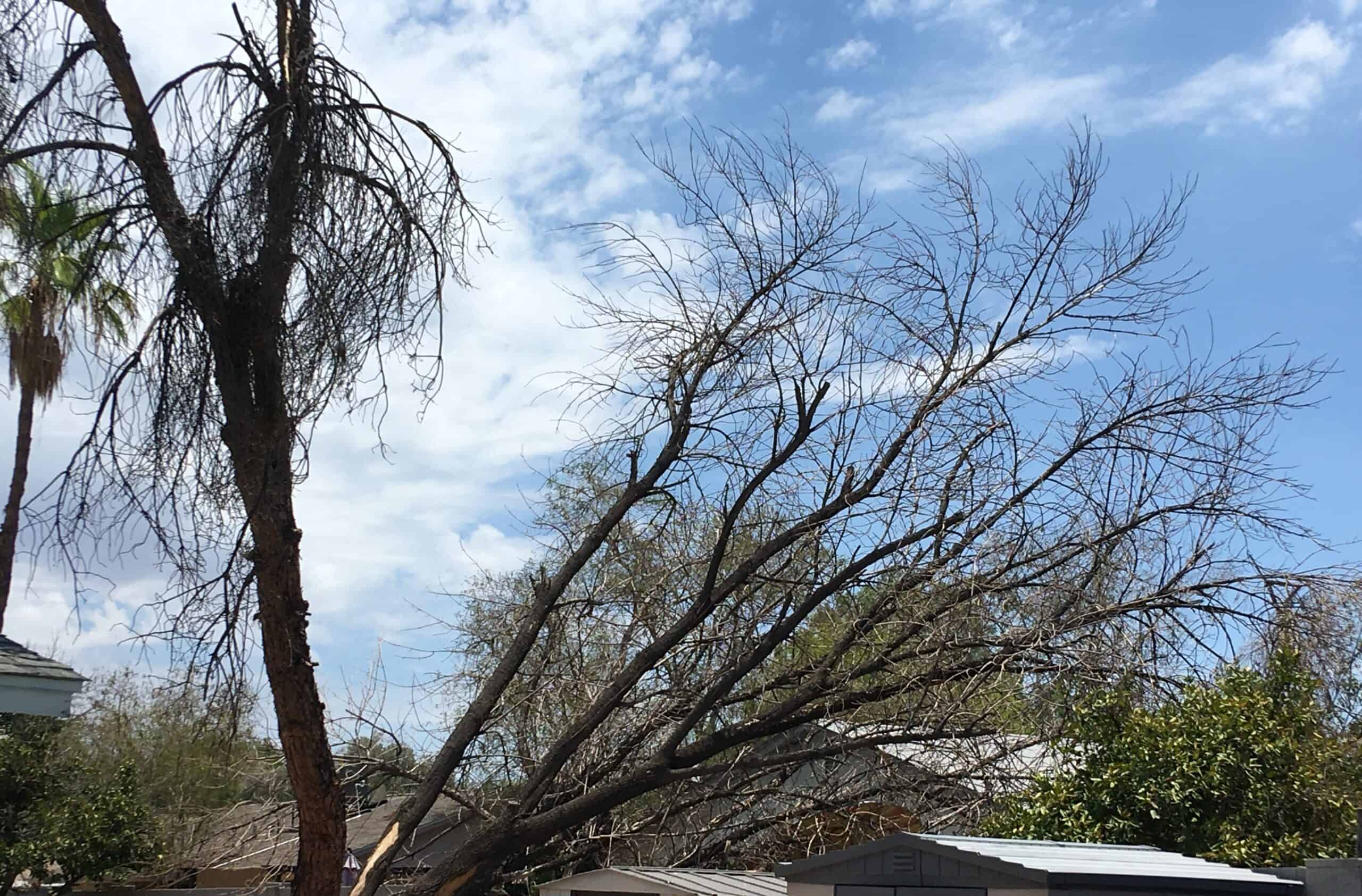Until recently, our next door neighbor had two dead trees in their yard. One in the middle of the yard had multiple trunks and was quite tall. I don’t remember it being alive while we’ve lived here. Climbing Daddy said he thought it was half alive when we moved in and died soon thereafter. Either way, it’s been dead for at least two years.
The other tree was much smaller—just one trunk and not as tall—but it leaned precariously in our direction. While I’m not terribly concerned about the fence going down, the fence is now just a few feet from our backyard pool, and that would be harder to fix.
The trees were too big for someone inexperienced to take down. Well, to take down safely.
A few weeks ago, a storm blew through and the big tree went down. Fortunately for them, it didn’t fall on their house. Fortunately for us, it didn’t fall in our direction. Unfortunately for the neighbors behind them, it fell in their direction.
From our yard, all I could really see was that one of the smaller trunks took out the top portion of the block fence. (I am constantly amazed that the walls around our yards are called fences.) It looked like that trunk didn’t make it all the way to the ground because the taller parts landed on their roof.
Regardless, the tree people came and removed both trees.
Based on a ton of assumptions that might be incorrect, the lesson that was reinforced to me is that it’s cheaper to take care of a problem before it’s a crisis.
Removing two trees costs less than removing two trees and repairing a block fence and potentially repairing or replacing whatever else it fell on in their neighbor’s yard, including their roof. (The roof looks OK from here.)
It seems that’s always how it works out when we put off things to try to save money. Or because we don’t have the money to spend at the front end. It costs more later. This is well-known as a part of the cycle of poverty, but I see it frequently in families and neighborhoods and companies that aren’t poverty-stricken. I’ve certainly been guilty of it when having the money wasn’t the issue, deciding to spend it was.
This is especially difficult on things that are expensive (it’s harder to spend a lot of money), things that aren’t actively bothersome (once they’re actively bothersome, they ignite more energy), or things that don’t have an aura of satisfaction about having them done (like new floors, which would be expensive but satisfying to look at/walk on).
A hot water heater that works but is showing signs of not working. A car that’s still running with the check engine light on. An intermittent problem on anything.
I frequently drive until the gas needle is on E or the light comes on.
But I generally eat well and exercise in an effort to avoid medical expenses, among other things.
People typically aren’t all one or the other. Everyone has something(s) that they are proactive about and something(s) that they kick down the road.
The takeaway for me was a simple reminder to take care of things that I don’t want or feel the need to take care of now to avoid a worse problem later.
Financial lessons learned seem always to be expensive. Fortunately, at least this time, I can remember the lesson without the hit to the checkbook.
